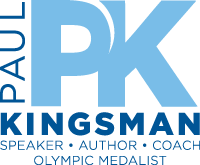Distraction-Proof® Advisor Ideas
Business-building ideas and advice to move you forward faster.
Don’t Give This Away – Part 2 (Distraction-Proof Advisor Idea Video #257)
Share this:
Last week I said that you are doing your clients a disservice if you don’t charge for doing a financial plan. But some of you are not even allowed to charge for doing a financial plan. So, what are you supposed to do?
- Develop language to effectively communicate the value of a financial plan, and specifically do not use the word “free.” Emphasize you are offering a complimentary service.
- Show clients the value of a plan.
- Use the language you’ve developed.
Last week I said that you are doing your clients a disservice if you don’t charge for doing a financial plan. But some of you are not even allowed to charge for doing a financial plan. So, what are you supposed to do?
…
This is a challenge when you’re working within an organization that doesn’t charge or permit you to charge for doing financial planning. On the one hand, you want people to value having a plan, and yet, on the other hand, how often do we value anything we get for free?
That’s why you don’t want to use the word “free” when you are encouraging clients to do a financial plan with you. You simply want to use verbiage along the lines of, “We do highlight the necessity for doing a financial plan. It’s so important, we offer it as a complimentary service because we don’t want price to get in the way. There are large financial services firms charging three-and-a-half, four-and-a-half, sometimes $5,000 for doing this plan. (Pause.) And we agree with that. These plans are valuable!”
The reason you pause there is because when you name some of the other companies that do charge for doing these financial plans, the person is going to naturally think that you’re going to say, “But we don’t charge for doing these plans; we offer them for free.” But, in fact, you want to say that you agree with charging an amount of money for this plan. They are valuable! Sow those seeds in this person’s mind; they are getting something of value. They’re not getting it for free. You believe so deeply in doing this, in taking this step, that they are receiving a complimentary service from you because you don’t want price to be a barrier to them taking this important step.
Then you might want to add words to the effect of, “One of the drawbacks with giving anything away for seemingly ‘free’ is that people don’t value it, and with the information that we require from you, it can be tempting to procrastinate. The moment you leave our meeting here, it can often be easy for other issues in life to crowd out what we’ve spoken about today, and, therefore, things get strung out. Procrastination sets in and getting me the details that I need can take some time. I want to work with you on this, and I want to see this project through to completion so you have a road map to where you want to get to.” That’s the kind of language you want to use to frame the situation of giving a complimentary financial plan to someone.
So if you do work in an organization that doesn’t permit you to charge for doing financial plans,
- Get some language down. Get comfortable using language where you are going to show the value of doing a plan, but you are not, specifically, going to use the word “free.” It’s a complimentary service.
- Show the person it’s valuable. Let them see that not everybody gets the opportunity to do this plan with you. People who are serious about their financial well-being do take this step with you because it lets them see what they can expect.
- Actually use this language. Let clients see that a financial plan is valuable, let them hear that other people charge for it, and let them understand that you value your relationship with them so much you won’t let price get in the way. This is a complimentary service that you are exhorting them to take so they can see everything in one place and get really excited about where the both of you are going to them get down the track.
I look forward to bringing you another Distraction-Proof Advisor Idea next week.
For more Distraction-Proof Advisor videos, visit my blog directory page to link to more ideas to help you gain control, work smarter and succeed sooner.
Make sure you don’t miss any of my weekly video tips to help you focus on what really matters in your business. Subscribe to have notifications of postings delivered directly to your inbox.
Paul Kingsman
Paul Kingsman is a sought-after expert on how to be distraction-proof. Through his speaking, writing, and coaching, he teaches financial services professionals how to maintain focus and take practical daily steps to successfully grow their businesses and achieve outstanding long-term results. To find out more about Paul and how he can equip you or your team to achieve your own outstanding results, visit PaulKingsman.com.
Search
Recent Posts
- When Referrals Aren’t a Good Fit (Distraction-Proof Advisor Idea Video #350)
- Make the Most of Reconnecting (Distraction-Proof Advisor Idea Video #349)
- Two More Communication Crutches To Avoid (Distraction-Proof Advisor Idea Video #348)
- Olympic Lesson: How to Make Big Goals Reality (Distraction-Proof Advisor Idea Video #347)
- Olympic Lesson: Make Time To Give Back (Distraction-Proof Advisor Idea Video #346)
Archives
Client Testimonials
"2021 has been a great year for my business, and a lot of that was because of what I learned from you, Paul. You've been an advisor, so you get it! Thank you so much for your invaluable transformative coaching and advice!"
Michelle Glass, Glass Financial Advisors
